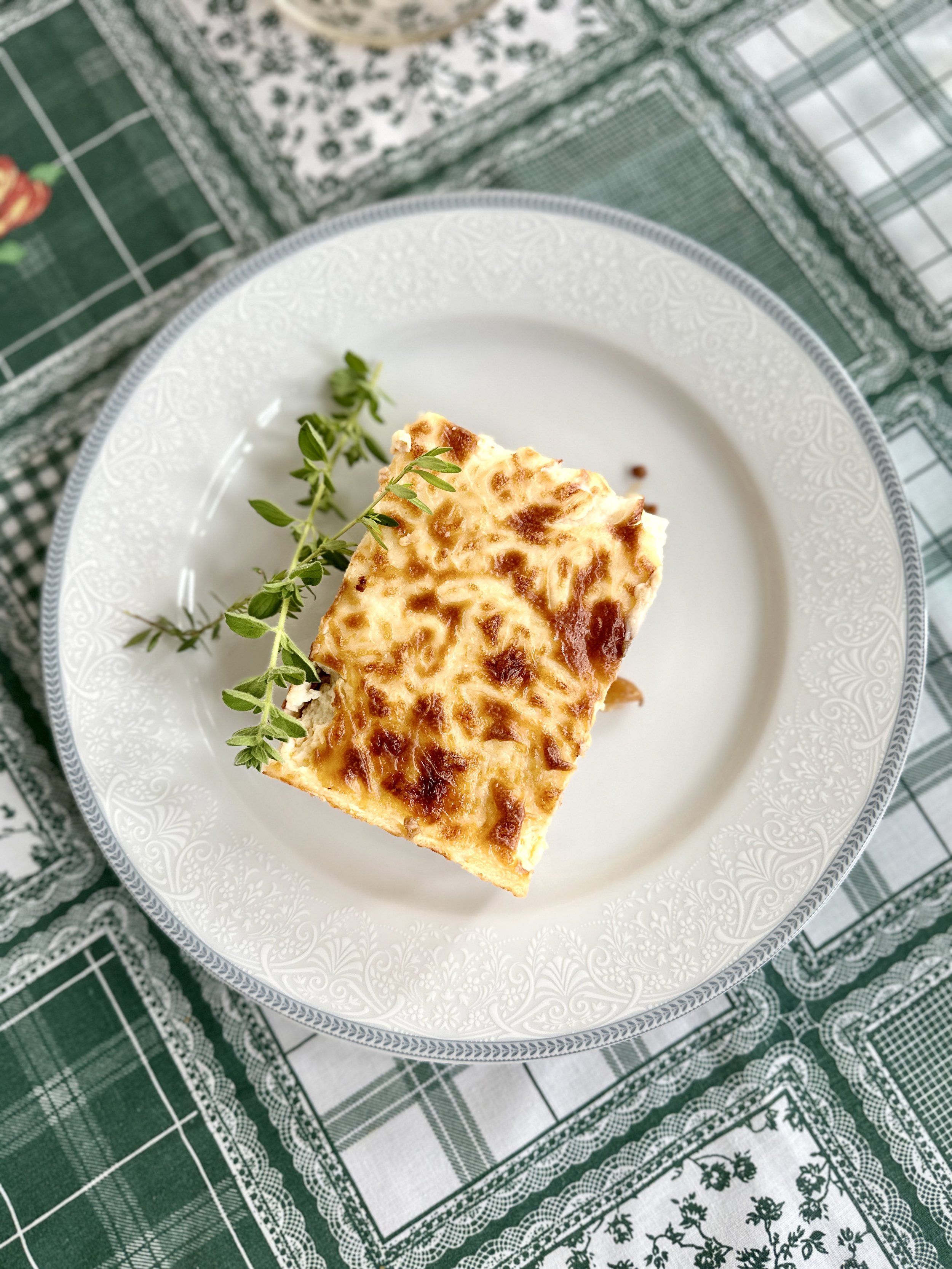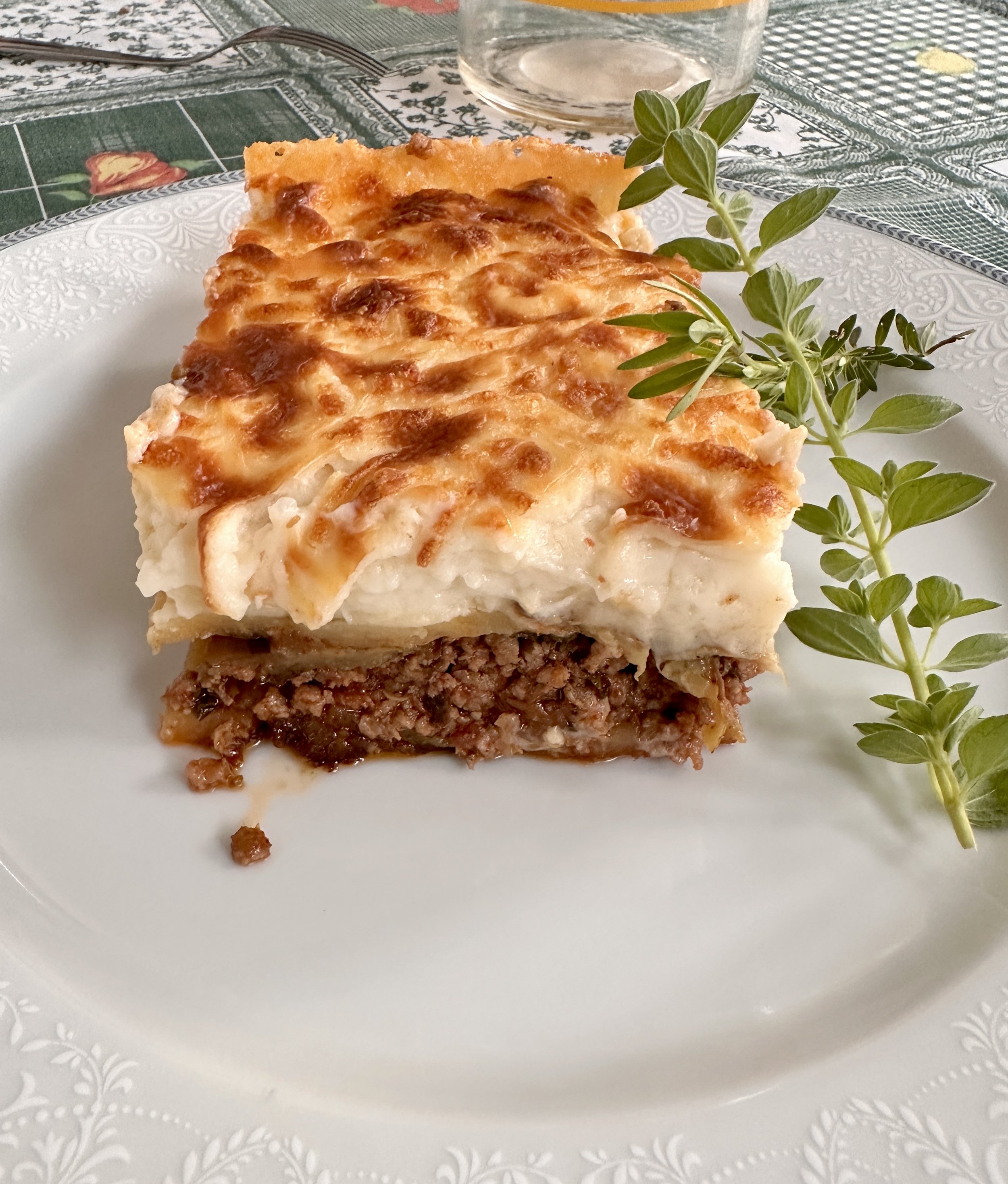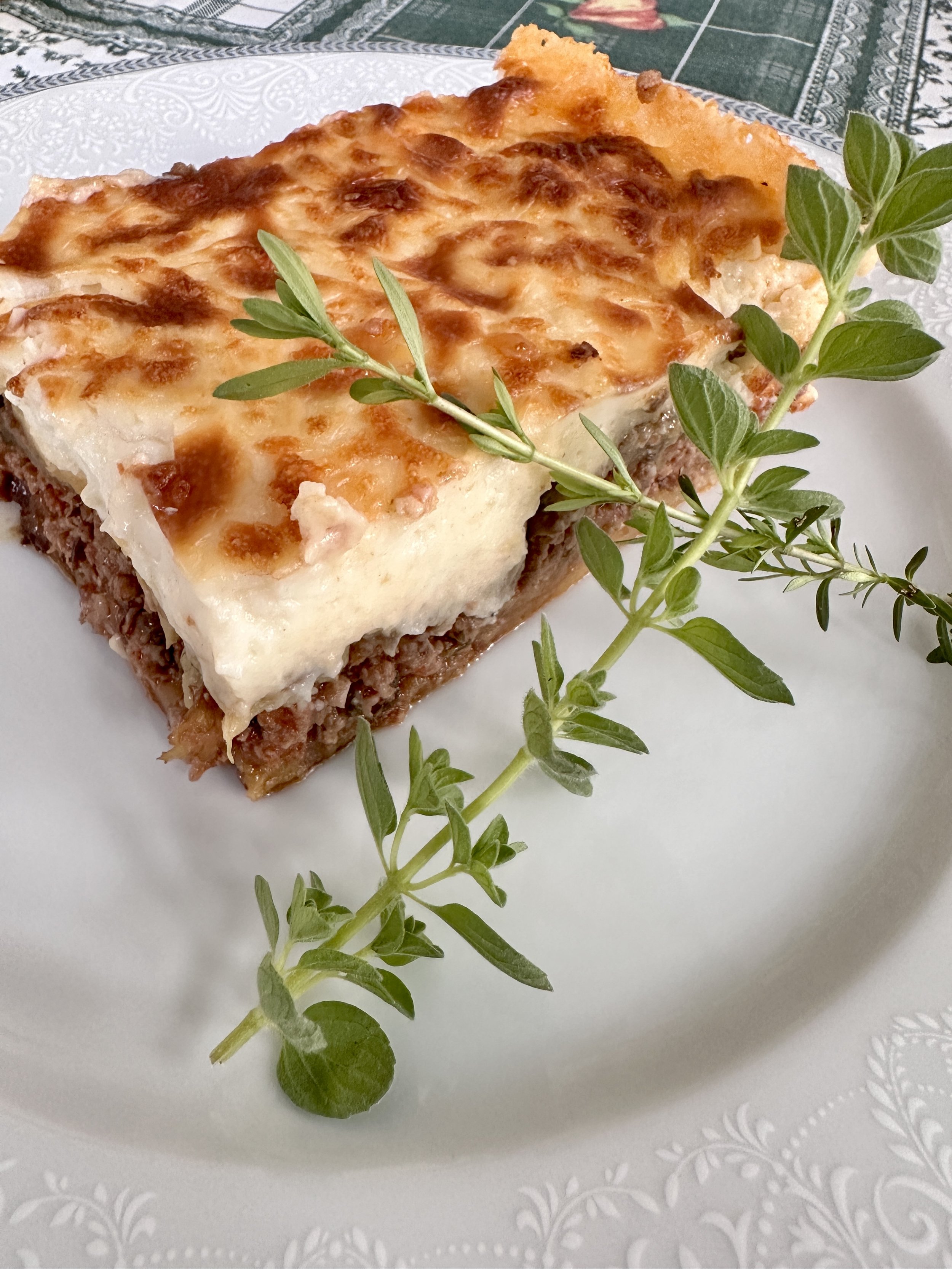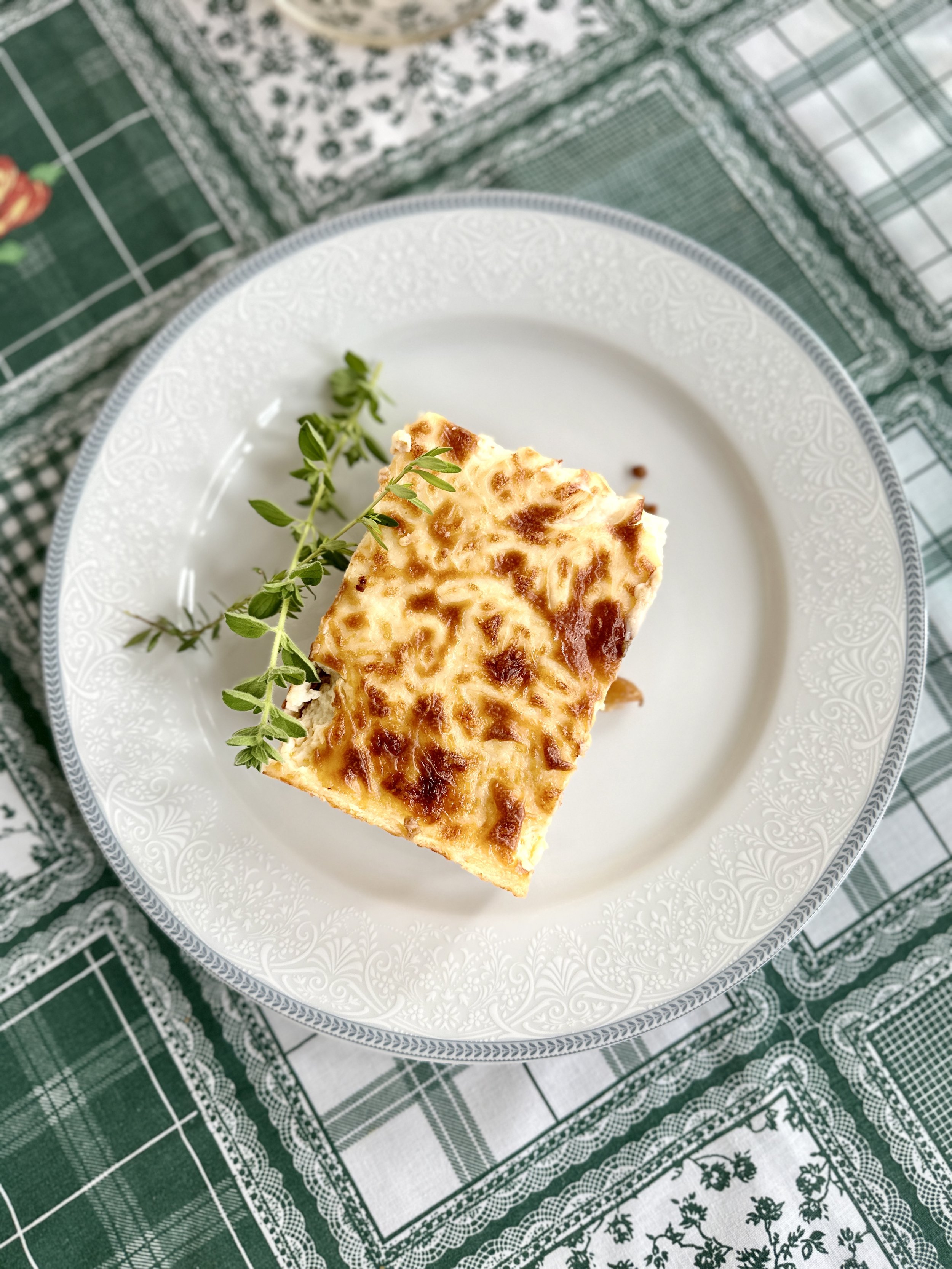Mastering Moussaka: The Real Greek Recipe
Step into the vibrant world of Greek cuisine with one of its most beloved dishes – Moussaka. Originating from the Mediterranean, Moussaka is a rich and flavorful culinary masterpiece that has captivated taste buds around the globe. Join me as we explore the history, secrets, and tantalizing flavors of this iconic dish, perfected by generations of Greek cooks.
Real Greek Moussaka-Dion, Greece
What is Moussaka Exactly?
In Greece, Moussaka holds a special place in the culinary landscape, thanks in part to the legendary recipes of Nikos Tselementes. However, it is the regional variations, passed down through generations of Greek families, that truly elevate Moussaka to gastronomic greatness. One such variation, perfected by my aunt, and another one by the mother of a dear friend of mine, in the picturesque village of Dion at the foot of Mount Olympus, is a testament to the artistry and tradition of Greek cooking.
Moussaka's origins may be shrouded in mystery, but it’s irresistible appeal is undeniable. With its layers of minced beef, potatoes, and eggplants, topped with creamy béchamel sauce, Moussaka offers a symphony of flavors and textures that delight the senses. While variations of Moussaka can be found throughout the Mediterranean and Middle Eastern regions, each with its own unique twist, the Greek rendition stands out for its fresh ingredients and meticulous preparation.
The Secrets to a perfect Moussaka dish
The secret to a truly exceptional Moussaka lies in the quality and seasonality of the ingredients. Fresh, locally sourced eggplants are essential for achieving the dish's signature flavor and texture. In Greece, eggplants are at their peak during the summer months, ensuring that Moussaka is enjoyed at its finest. Equally crucial is the béchamel sauce, made with patience and care to achieve the perfect balance of richness and lightness.
To create the ultimate Moussaka, attention to detail is key. From the slow-cooked meat, infused with just the right amount of spices, to the organic potatoes that form the hearty base, every component plays a vital role in the dish's harmonious flavor profile. Greek cuisine emphasizes the use of spices in moderation, allowing the natural flavors of the ingredients to shine through. And of course, no Moussaka would be complete without Greek extra virgin olive oil, the best olive oil in the world.
Classic Real Greek Moussaka Recipe
With its rich history, diverse flavors, and timeless appeal, Moussaka remains a cherished symbol of Greek culinary heritage. So, gather your ingredients, sharpen your knives, and prepare to embark on a delicious adventure that celebrates the art of Greek cooking.
MOUSSAKA RECIPE INGREDIENTS
FOR THE MEAT
750 grams ground beef
1 clove garlic, finely chopped
2 onions, finely chopped
1/4 bunch parsley, finely chopped
150 milliliters dry red wine
1 teaspoon sweet tomato paste, dissolved in 300 milliliters water
5 medium ripe tomatoes, grated
1 cinnamon stick
2-3 allspice berries
2 bay leaves
60 milliliters olive oil
Salt and freshly ground black pepper to taste
FOR THE VEG
4 large eggplants, sliced into long strips, about 1 cm thick
3 courgettes (zucchini), sliced into rounds, about 0.5 cm thick-OPTIONAL
3 medium potatoes, sliced into rounds, about 0.5 cm thick
Oil for frying
FOR THE BECHAMEL
100 grams all-purpose flour
120 grams unsalted butter
1 liter fresh milk, warmed
2 egg yolks
1/3 teaspoon freshly grated nutmeg
Salt and freshly ground pepper to taste
150 grams grated graviera cheese (salty "Greek Gruyère") or another salty cheese if not available in your country.
Procedure:
Vegetables:
Begin by salting the eggplants and allowing them to sit for a few minutes to release their liquid. Meanwhile, prepare the other vegetables.
Heat a generous amount of oil in a large pan and fry the potato slices in batches over moderate heat (ideally around 140°C) until they are soft but not browned. Drain them on paper towels.
In the same pan, without adding any fat, sauté the courgette slices over medium heat for 4-5 minutes until they are soft and lightly browned. Transfer them to a colander to drain.
Rinse the eggplant slices, pat them dry, and sauté them in the same pan used for the courgettes for another 4-5 minutes until softened and lightly browned. Set aside.
Minced Meat:
Heat half of the olive oil in a wide saucepan over high heat. Sauté the minced meat with the garlic for 3-4 minutes until browned.
Add the remaining oil and the onions, and sauté for an additional 4-5 minutes.
Deglaze the pan with the wine, stirring for 1-2 minutes until the alcohol evaporates. Add the diluted tomato paste, grated tomatoes, spices, bay leaf, salt, and pepper. Reduce the heat, cover, and simmer for 25 minutes.
Remove the cinnamon stick, bay leaves, and allspice. Stir in the chopped parsley.
Béchamel:
While the minced meat is simmering, melt the butter in a saucepan over medium heat. Gradually add the flour, stirring constantly with a whisk for 2-3 minutes until a thick cream forms.
Slowly pour in the hot milk, stirring constantly until the mixture thickens and forms a smooth, slightly runny béchamel sauce.
Remove from heat and stir in the egg yolks, half of the grated cheese, nutmeg, salt, and pepper.
Assembling the Moussaka:
Preheat the oven to 180°C.
Lightly grease a deep baking dish with olive oil and layer the potato slices tightly, ensuring there are no gaps.
Spread half of the minced meat over the potatoes, followed by the courgettes.
Add the remaining minced meat and layer the eggplant slices on top.
Evenly spread the béchamel sauce over the eggplant and sprinkle with the remaining grated cheese.
Bake the moussaka for 40-50 minutes until the béchamel is golden brown.
Allow the moussaka to cool for 20-30 minutes before serving.
As we conclude our culinary journey through the world of Moussaka, I invite you to embrace the spirit of Greek hospitality and creativity in your own kitchen. Whether you're a seasoned chef or a novice cook, Moussaka offers endless opportunities for exploration and experimentation. This is just one of the many Moussaka recipes. I will come back with more-it’s a promise!
Sofia




